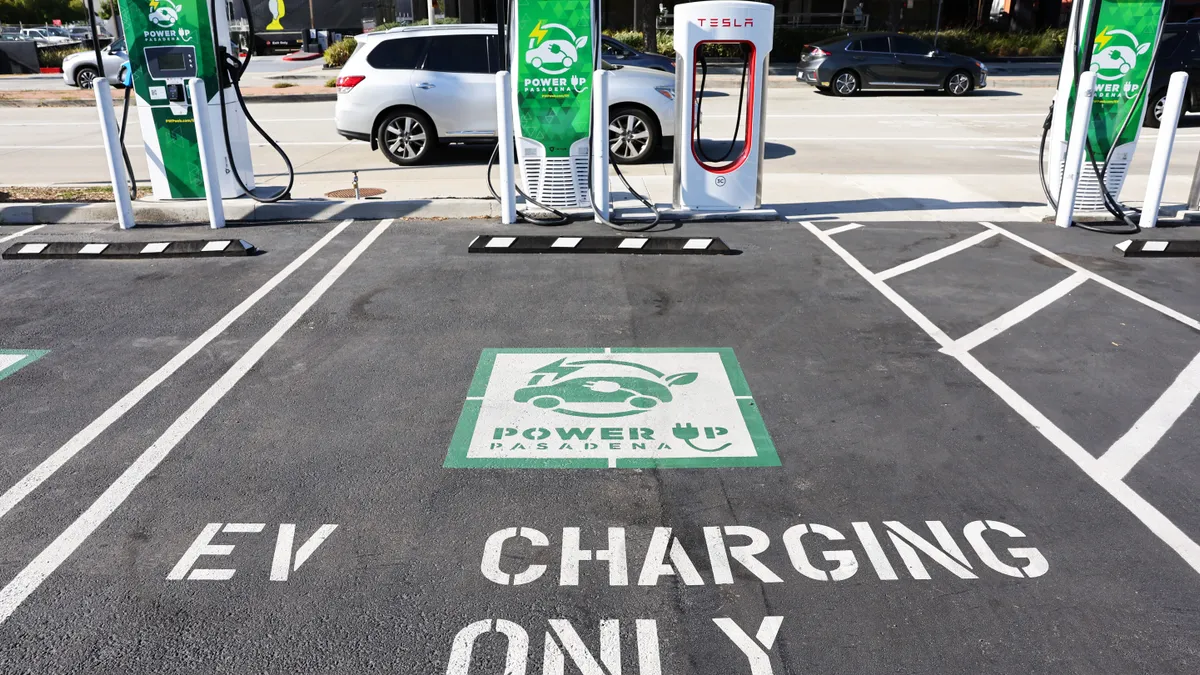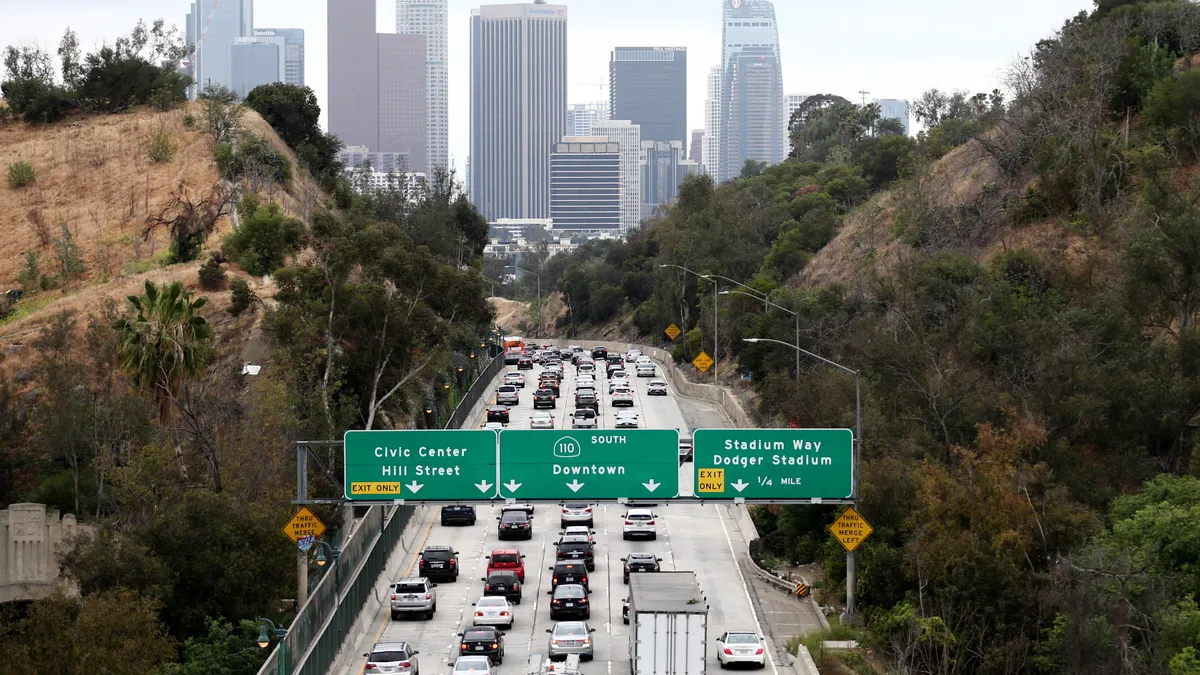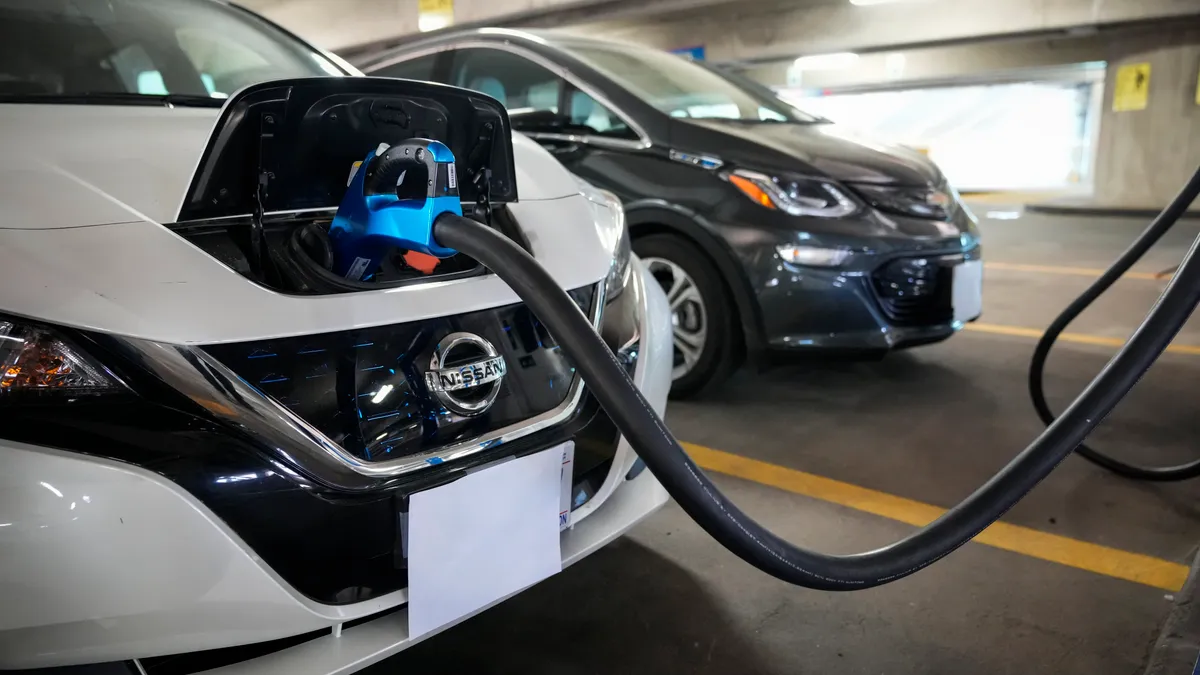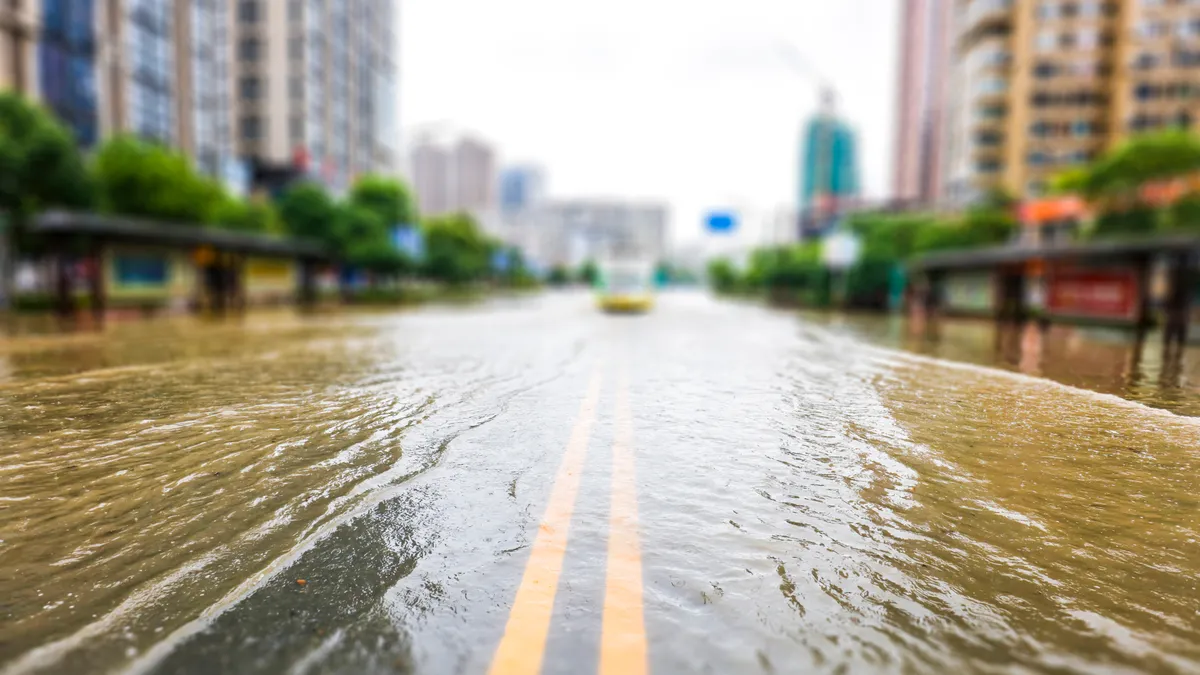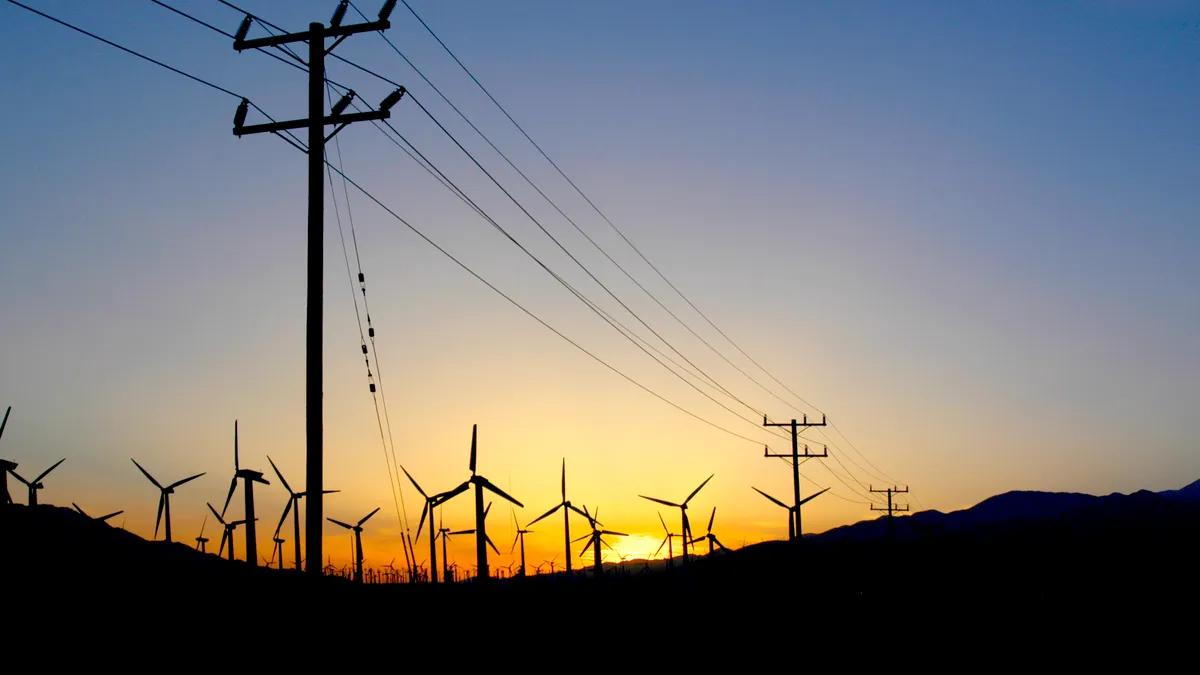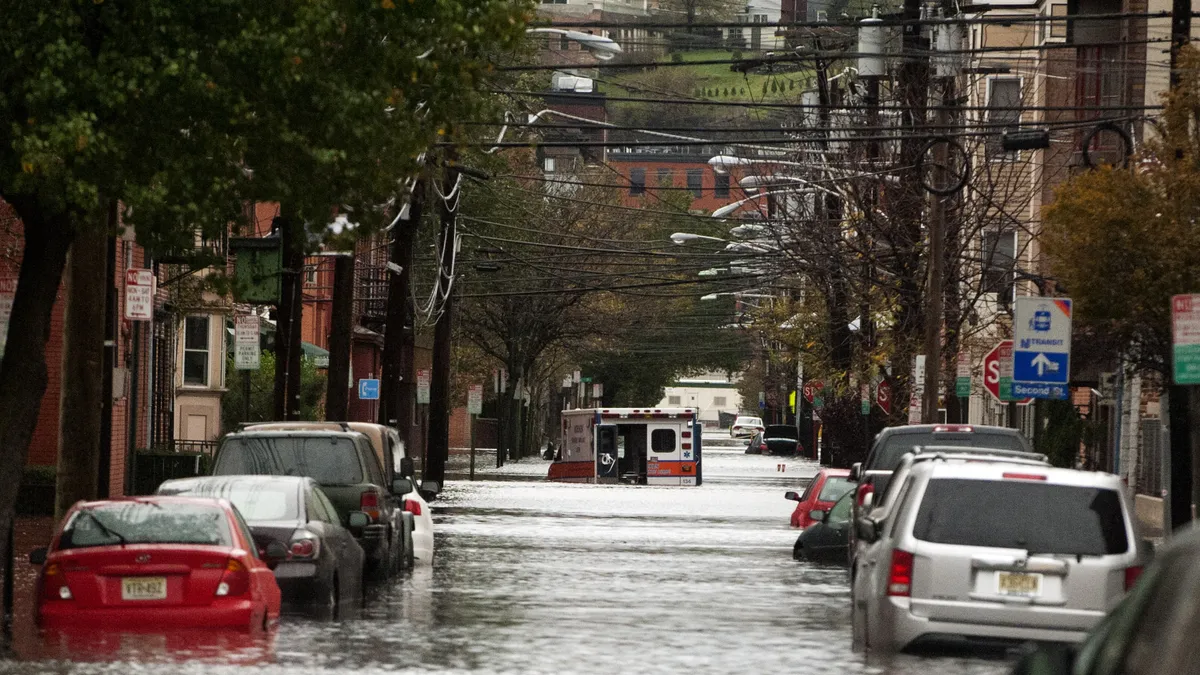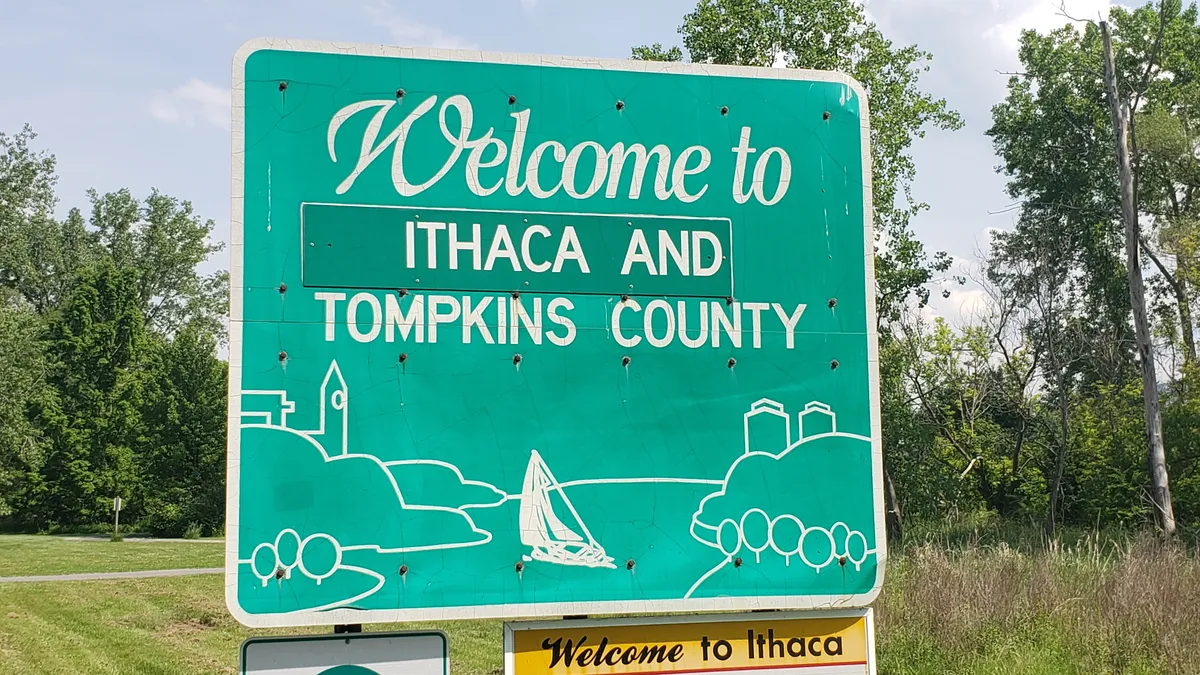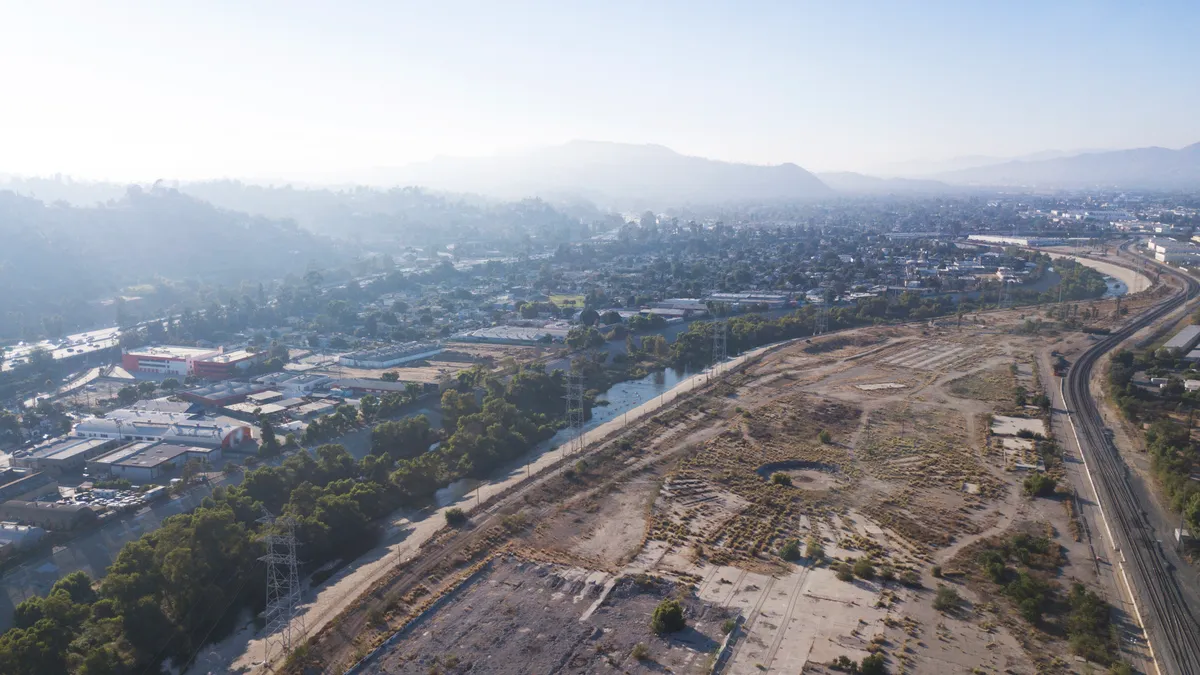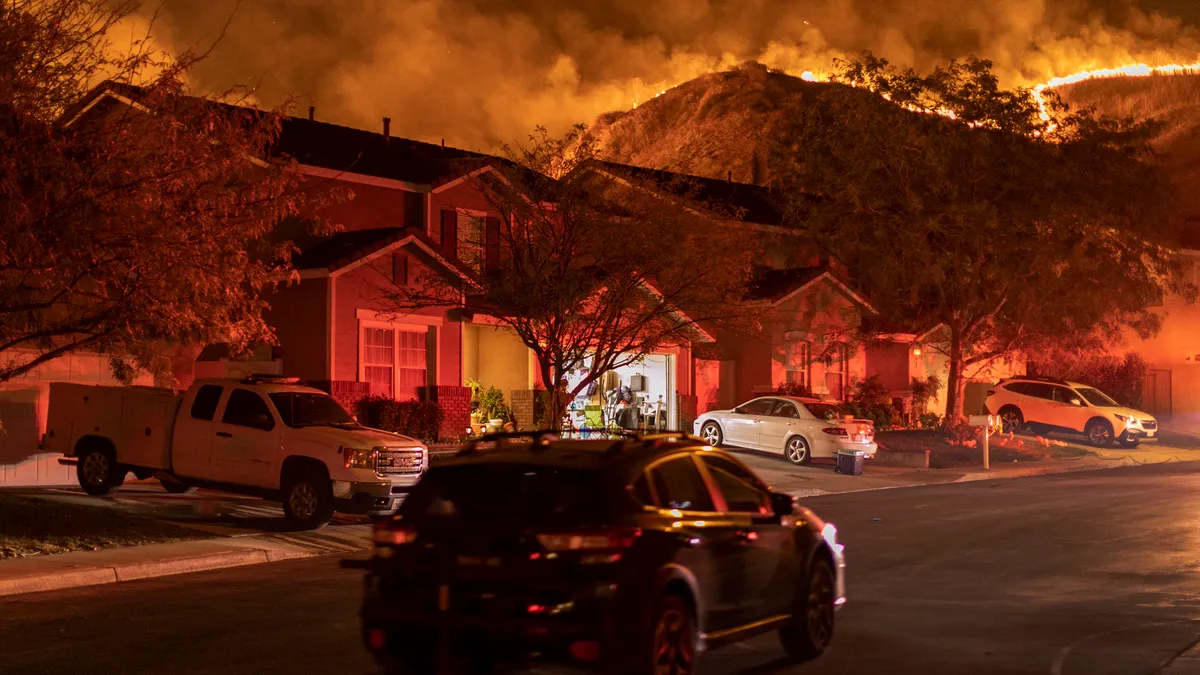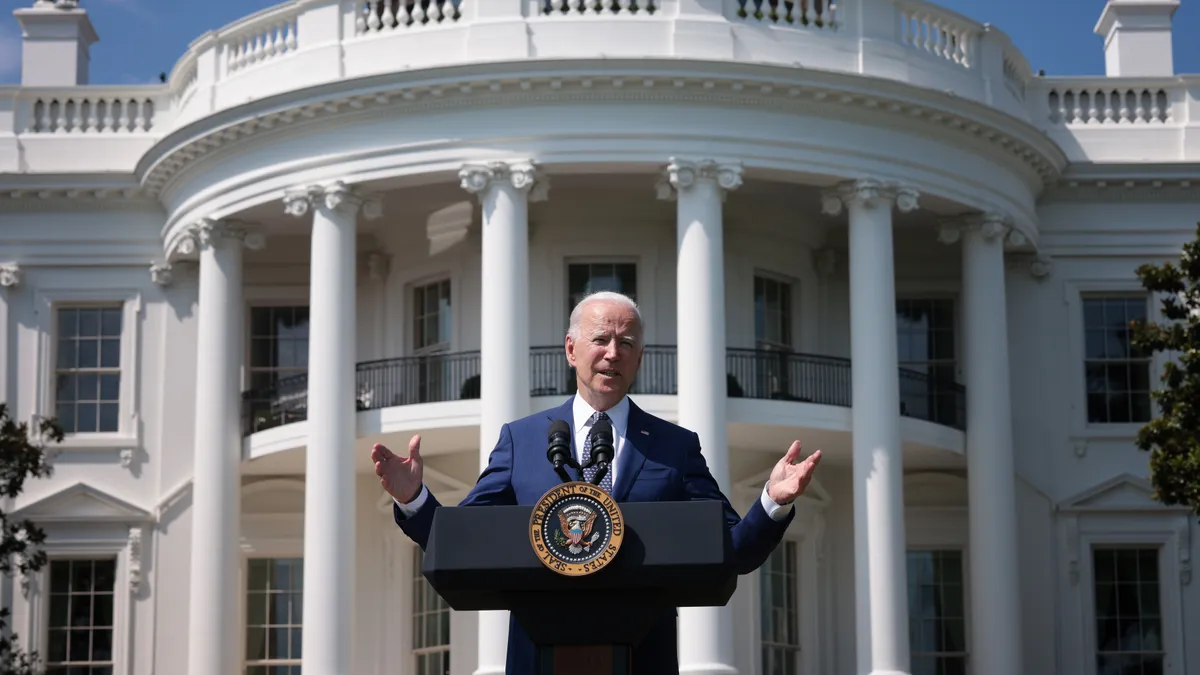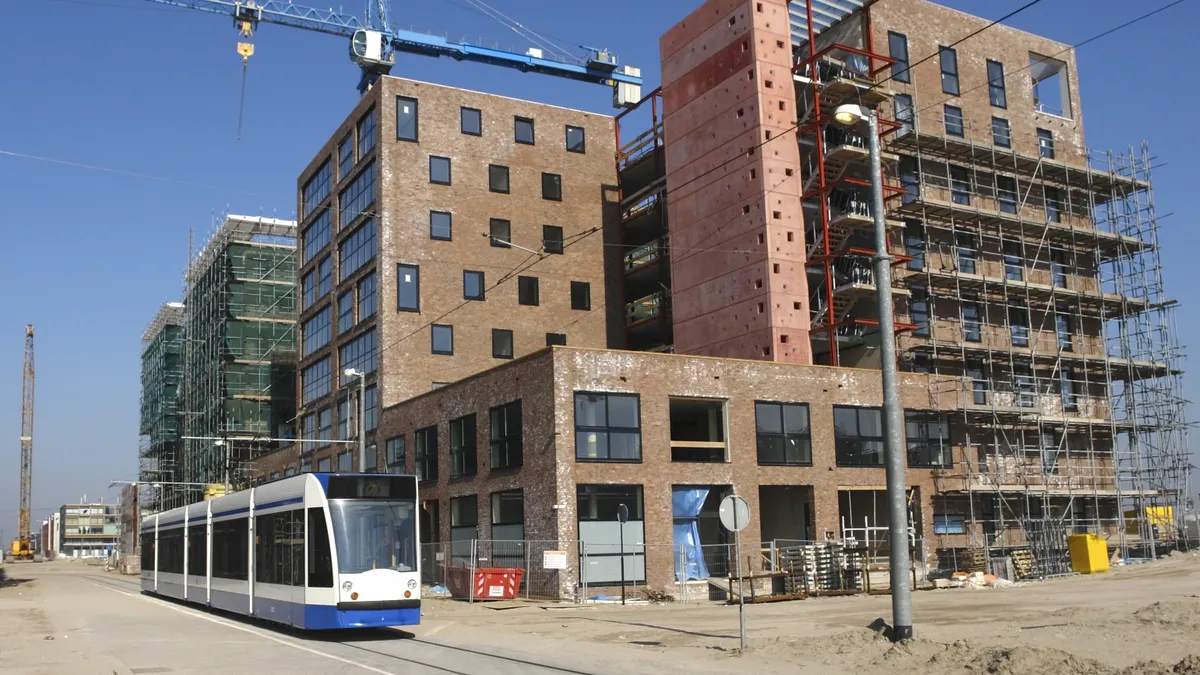Climate & Resilience: Page 27
-
Charlotte mobility plan aims to slash car use, transform access to lower-emission options
The strategic mobility plan seeks to improve transit options and accessibility to create real change for North Carolina’s largest city, which once ranked last among 50 comparable cities for intergenerational mobility.
By Austyn Gaffney • July 11, 2022 -
EV adoption is higher where consumers see more electric vehicles, studies show
Peer effects and EV-friendly government policies help drive consumer adoption of electric vehicles, mounting research suggests.
By Dan Zukowski • July 8, 2022 -
 Explore the Trendline➔
Explore the Trendline➔
 jamesteohart via Getty Images
jamesteohart via Getty Images Trendline
TrendlineTop 5 stories from Smart Cities Dive
From worsening climate change to a shifting transportation landscape and the housing affordability crisis, cities have their work cut out for them.
By Smart Cities Dive staff -
City on-road emissions targets proposed by Biden administration
The Transportation Department wants to require state DOTs and metropolitan planning organizations to reduce greenhouse gas emissions from travel on National Highway System roads in their regions.
By Dan Zukowski • July 8, 2022 -
Interest in EVs has grown substantially, survey shows
A Consumer Reports survey shows 14% of consumers would buy or lease an electric vehicle if shopping today, but high purchase costs and low awareness of incentives remain barriers.
By Dan Zukowski • July 7, 2022 -
Cities launch short and long-term strategies to combat heat waves
This week brings a new heat dome over much of the U.S. Cities have to adapt to more dangerous summers, but policies and strategies vary.
By Maria Rachal • July 6, 2022 -
Switching to efficient electric heat pumps and appliances could save Oregon $1.1B through 2050, study finds
In Portland, for instance, households that electrify could save $161 a year on energy compared to homes that burn gas. Meanwhile, the city of Eugene is pursuing a local policy to wean developers off natural gas in new construction.
By Kavya Balaraman • July 6, 2022 -
Urban flooding presents challenges for electric vehicle charging stations
Considerations around sea level rise and intense rains come as the Federal Highway Administration weighs where to effectively locate chargers for the future as more people drive EVs.
By Charles Pekow • July 5, 2022 -
GAO urges EPA, NOAA to do more about harmful algal blooms
The growing issue causes economic harm to communities when it closes lakes and deters tourism activity, and hurts health when it leads to toxins in water supplies or respiratory issues.
By Katie Pyzyk • July 5, 2022 -
Many mayors condemn Supreme Court ruling limiting EPA's ability to regulate greenhouse gas emissions
Cities have doubled down on reducing emissions in recent years. Local leaders say Thursday’s 6-3 decision weakens a key federal partner that they believed would help them achieve their goals.
By Danielle McLean • July 1, 2022 -
5 strategies to advance micromobility for urban last-mile delivery: report
If urban deliveries grow 78% by 2030 as predicted, traffic and emissions will grow too, an Uber-commissioned whitepaper states. The use of bikes, cargo bikes, trolleys and drones could reduce those impacts.
By Charles Pekow • June 24, 2022 -
Flooding and drought-driven urban damages, GDP loss to balloon: C40 analysis
River flooding damages could cost the nearly 100 cities in the global climate action network $64 billion annually by 2050, while costs tied to more frequent and severe droughts could tally $111 billion per year, the group estimated.
By Maria Rachal • Updated June 23, 2022 -
California needs to triple historical decarbonization rates to meet 2030 carbon target, report finds
“The key takeaway is that California is leaving beneficial, earlier action on the table,” said Chris Busch, research director with Energy Innovation and primary author of the report.
By Kavya Balaraman • June 17, 2022 -
Urban forest carbon credits gain momentum
After the largest single urban forest carbon credit purchase in U.S. history, more cities and corporations may start to recognize how investing in trees also benefits resident health and well-being, market supporters say.
By Maria Rachal • June 16, 2022 -
All signs point to a 'growing appetite' for digital twins: report
Implementation is expected to increase 36% over the next five years, according to a Capgemini Research Institute report. But one smart city expert cautions city leaders against falling for the technology's "hype.”
By Cailin Crowe • June 8, 2022 -
Deep Dive
As more cities declare crises around climate and affordability, does change follow?
Declaring emergencies can unlock some new capabilities and foster accountability, but substantial government follow-through is necessary to separate them from mere speech, city leaders say.
By Adina Solomon • June 7, 2022 -
Los Angeles pilots digital twin project to aid building decarbonization
Digital twin platform Cityzenith is teaming up with Los Angeles to help construct a virtual replica of a section of the city to help make its buildings more sustainable and reduce carbon emissions.
By Melissa Goldin • June 3, 2022 -
Deep Dive
Inside Ithaca's plan to electrify 6,000 buildings and grow a regional green workforce using private equity funds
The city has mustered $105 million in private funds to support low-cost loans for businesses and residents to install heat pumps.
By Robert Walton • June 3, 2022 -
Q&A
Austin's new chief resiliency officer talks equipping communities in face of extreme weather, violence, injustice
Former Houston official Laura Patiño talks about lessons learned from Winter Storm Uri, the push to enact "resilience hubs" and the potential for a national chief resilience officer.
By Maria Rachal • May 31, 2022 -
Urban parks vie for Interior Department construction, renovation funds
About $61 million in federal grant funding could provide an economic life raft for 27 urban parks in 26 underserved communities.
By Austyn Gaffney • May 25, 2022 -
As destructive wildfires increase, new model can calculate property risk
A nonprofit's online tool identifies a home's wildfire risk based on publicly available data and property details. Nearly 80 million homes are expected to face some level of risk by 2050 as climate change continues.
By Matthew Thibault • May 19, 2022 -
White House vows to speed up environmental review for federal infrastructure projects
The new action plan will help streamline permitting and accelerate projects, Biden administration officials said earlier this week.
By Julie Strupp • May 13, 2022 -
To track urban heat, NOAA initiative offers funding for 2024
Jan. 31 is the deadline for communities to apply for the urban heat island mapping program for tracking neighborhood-level heat disparities.
By Maria Rachal • Updated Jan. 4, 2024 -
Park funding not keeping up with needs: survey
Deferred maintenance costs are ballooning as cities and residents lean on parks for more and more uses, an annual Trust for Public Land analysis of the 100 most populous U.S. cities found.
By Maria Rachal • May 4, 2022 -
Minneapolis shares compost program tips as NYC, DC, Chicago ponder new services
The Minnesota city has over 50% program participation after going citywide around 2015. Boston and Denver are also among the cities with potential expansions on the horizon.
By Maria Rachal • May 3, 2022 -
Opinion
To reduce transportation emissions, make it realistic for people to ditch cars
Building walkable communities with easy access to public transit is key to reducing our reliance on cars and achieving environmental goals, writes the CEO of Keolis North America.
By David Scorey • May 2, 2022


